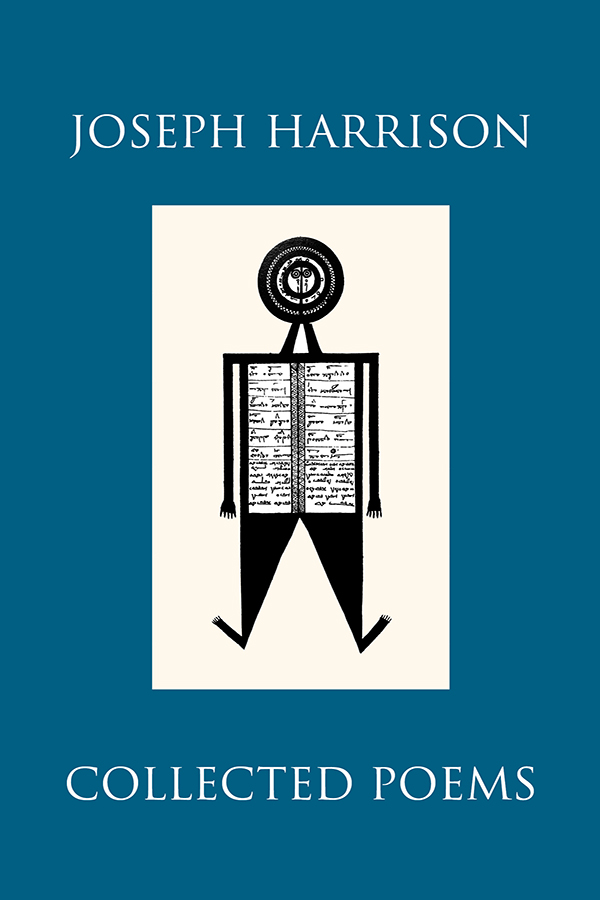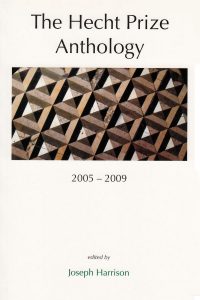Collected Poems
£24.99
This volume brings together the four mature collections of a modern master: Someone Else’s Name (2003), Identity Theft (2008), Shakespeare’s Horse (2015), and Sometimes I Dream That I Am Not Walt Whitman (2020). It is an eloquent, stirring, and peerless body of work, one which, to quote from the very first poem in Someone Else’s Name, has inscribed The signs of a single heart // That gave its love to art / And wore that on its sleeve.
Harrison’s art is worthy of comparison to the great art of the past but it is also startlingly reflective of the upheaval of the present. Few could have written poems so persuasively responsive to such a range of figures—from Shakespeare to Swinburne, from Whitman to Frost, from Victor Hugo to Charles Dickens—and no-one else could have written poems so wildly inventive on such a span of subjects—from internet identity theft to robotic volcanology, from military balloons to Afghan kite fighting, from Emily Dickinson’s zombies to the Mandaean demon Dinanukht (to name but a few).
Harrison’s work has been praised by a remarkable collection of fellow poets. Richard Wilbur commended his stunning performances,
and John Ashbery observed: we come away
from reading Harrison’s poetry deeply refreshed.
He has been recognized as a brilliant master of the formalities of English versifying
(Anne Stevenson), a poet whose meditative, elegiac temperament is married happily to verbal wit, even laugh-out-loud humor
(Mary Jo Salter), and an audacious prosodist and syntactician, an exhilarating logophile and a master of tone.
(Stephen Yenser).
Out of stock
Collected Poems
Joseph Harrison takes his place with the great formal poets of our time. Classically minded, romantically inclined, he has used his dazzling wit and preternatural skill to deepen our understanding of ourselves in a fraught, ever-changing world. His Collected Poems is a sustainment of life.
— Edward Hirsch
Joseph Harrison’s poems prove a remarkable devotion to the art they practice. For one thing, their formal expertise shows the refinement of a great natural gift: no matter how ornate their form, they always speak to the subject (and vice versa) in ways that seem graceful and natural. For another, the poems are constantly in dialogue with their predecessors (Shakespeare, predominantly, but also Spencer, Whitman, Tennyson, and Dickinson—to name just a few), but never in ways that compromise their own authenticity. How does Harrison manage this? By grounding his work in the belief that poetry is a quintessential part of life, by leavening his seriousness with wit, and by setting the rewards of his reading at the center of his experience as a whole. It means that for all its steadfast intelligence and learning, his work is constantly animated by its association with the startling vagaries of life, and by an unusually acute sense of the sometimes-humorous, sometimes-plangent interplay between the surfaces and the essences of things. Collected Poems is a distinguished book: clever, humane, and vigilant.
— Andrew Motion
‘But why complain / About not being self-possessed?’ asks the protagonist of Joseph Harrison’s ‘The Compromised Ventriloquist.’ Au contraire: Harrison is an uncompromising ventriloquist, not complaining about, but celebrating his fantastical range of voices. The titles of his books proclaim as much: Someone Else’s Name, Identity Theft, Sometimes I Dream That I Am Not Walt Whitman … His Collected Poems gathers in one volume this splendid plenitude, this chorus of beloved ghosts ringing down the centuries from Chaucer to our digitally dinging day. All of it Harrison translates into his own wit, panache, panegyric, satire, and elegy: a composite love song to the whole art of poetry.
— Rosanna Warren
To read Mary Jo Salter’s enthusiastic short essays about five of the poems included in Harrison’s Collected Poems, please visit David Lehman’s blog at Best American Poetry
Reviews of Joseph Harrison: Collected Poems
Alabama Writers’ Forum (March 20, 2024)
Poetry in the 21st century is very much alive, and here is a volume to prove it. Joseph Harrison’s Collected Poems, which will be generally available in April 2024, gathers poems from four of the poet’s previously published volumes: Someone Else’s Name (2003), Identity Theft (2008), Shakespeare’s Horse (2015), and Sometimes I Dream That I Am Not Walt Whitman (2020). Throughout the collection, Harrison delights in the poetic forms of the past, and invents intricate new forms that highlight his verbal virtuosity. ‘Runaway Blimp,’ for example, is a poem of one sentence that winds through ten tightly rhymed stanzas of eight lines each. By contrast, Harrison’s poems in the style of Emily Dickinson are short, direct, and spare. The opening poems in Someone Else’s Name (2003) remind us that love reveals our shortcomings yet enables us to forgive ourselves for some portion of them. ‘As If,’ a series of twenty-two sonnets, is wry and passionate by turn. Phrases from Shakespeare, Donne, Marvel, and other Renaissance poets appear, yet Harrison makes their romantic dilemmas his own. In sonnet 7, Harrison trashes his rival: ‘I know I cannot match his gift, his scope / (He frequents prostitutes, he peddles dope).’ Anthony Hecht calls this sequence ‘as fine a tour of the conundrums of identity, love and doubt as any I know.’ The book ends with the magnificent ‘Mobile Bay Jubilee,’ which describes a rare evening when oxygen-starved fish crowd the shallows and are harvested by excited residents.Identity Theft (2008) deals with the malleability of personal identity in the digital age. The title poem consists of seventeen nine-line stanzas, each one rhymed ababbcbcc, one message of which is, ‘No, you can’t win the game, and, yes, you have to play.’ In ‘Trajectory’ Harrison notes that ‘The person jabbering in the street alone / Was certainly deranged. / Now he’s just on the phone.’ Perhaps the sweetest poem in this section is ‘On Rereading Some Lines of Poetry,’ in which Harrison revisits Wordsworth’s ‘Tintern Abbey’ and finds refreshment for his soul there. However, ‘Who They Were,’ a meditation on the poet’s childhood, is equally tender, as is the concluding poem, ‘To My Friends,’ which advises us, ‘Don’t spend too much time grieving.’ Shakespeare’s Horse (2015) is musical, brilliantly crafted, and has, according to critic Harold Bloom, comedy that is ‘refreshingly original.’ In ‘To Riccardo Duranti’ Harrison congratulates his friend on his luxurious situation on a ‘farm in the Sabine Hills,’ but concludes by warning that ‘your nasty old neighbor . . . cheats at pool like a little Berlusconi.’ In ‘Damon’ Harrison shows that ‘alizarin’ can rhyme quite sensibly with ‘zeroes in.’ Who knew? In Sometimes I Dream That I Am Not Walt Whitman (2020) Harrison considers the sources and varieties of poetic excellence. ‘Orogenesis’ compares poetic inspiration that rises from the unconscious mind with the ‘compressed volcanic agony’ that moves beneath tectonic plates. In other poems he channels the voices of Whitman, Dickinson, Frost, Stevens, and others. ‘Mark Strand’ is a gentle remembrance of a poet Harrison knew and admired.
— Steve Harrison (no relation)
To read the whole of this review, please go to: https://writersforum.org/collected-poems/
Two poems from Joseph Harrison’s Collected Poems
All That’s Left
Will someone tell me, please,
Who carved these trees
With someone else’s name?
These woods won’t be the same,
For I thought, all along,
Mine was the only signature among
These pale textures of bark
Rising out of the dark
Underworld of the forest floor.
But who was here before?
Who chiseled each new line
On everything I thought was mine,
Initialling all these
Purely imaginary trees
Deep in the forest of my mind?
No Orlando, mad for Rosalind:
These cuttings, even when crude,
Speak only out of solitude,
The signs of a single heart
That gave its love to art
And wore that on its sleeve,
Having come to believe
It was the necessary sacrifice,
And paid the price.
If someone else could see
These careful lines, would he,
Underneath their curlicue and flair,
Hear the real pathos there,
The note of the ultimate cost
When feeling itself is lost
And all that’s left is the mark
Of absence against the dark?
Joseph Harrison
The Compromised Ventriloquist
1
Gastromancy, vibration in the gut
Tuned to the presence of the dead,
Possessed the medium to utter what,
Digested, triggered hope or dread
In questioners delighted or aghast
At all they thought they finally knew.
To tell the future or reveal the past
Was dangerous. The darkest clue
Doomed sacrificial youths and beasts.
Dim ravings, guttural, abrupt,
Translated to hexameters by priests
In versions polished and corrupt
Proved riddles no less difficult to crack.
The truth was rarely clear or kind.
Cautious Lysander wound up stabbed in the back,
Croesus conquered, Oedipus blind.
2
What once was supernatural decree
Became, in time, a party trick
Crowds at the music halls would pay to see.
The animated dumb sidekick,
Charlie McCarthy, Sailor Jim, or Coster Joe,
Though just a cheeky, wiseass puppet,
Would show his straight man up throughout the show,
Flip every quibble and one up it.
Oracular enshrinement? Oh so past.
Ventriloquy was entertainment.
Magic was stagecraft, voice the artful cast.
Nobody wondered what the strain meant.
3
Nearing the scribbled end, he took the stage,
The compromised ventriloquist,
His bare-bones theater the haunted page.
Obscurity, “uncouthe unkiste,”
Held no protection from the talking dead.
No charm or curse could exorcise
The choir of sirens singing in his head
Inspiring another exercise.
His “own distinctive style” at last? Dream on.
Some stuff he made up, sure. But then
Those ghostly demarcations would stream on
Flooding his studio again
To wash him up and out and down the drain.
Too influential, they impressed
And he was pressed. But why complain
About not being self-possessed?
Conspiring to imprison him for years,
Through harmony and ornament
The arch conductors of the crystal spheres
Abused him as their instrument.
Black magic? Maybe. Cheating? Well, that too.
Who’s talking? Uh oh. Hold the phone.
He was the dummy they kept speaking through
In words that were and weren’t his own.
Joseph Harrison
Excerpts
Two poems from Joseph Harrison's Collected Poems
All That's Left
Will someone tell me, please,
Who carved these trees
With someone else's name?
These woods won't be the same,
For I thought, all along,
Mine was the only signature among
These pale textures of bark
Rising out of the dark
Underworld of the forest floor.
But who was here before?
Who chiseled each new line
On everything I thought was mine,
Initialling all these
Purely imaginary trees
Deep in the forest of my mind?
No Orlando, mad for Rosalind:
These cuttings, even when crude,
Speak only out of solitude,
The signs of a single heart
That gave its love to art
And wore that on its sleeve,
Having come to believe
It was the necessary sacrifice,
And paid the price.
If someone else could see
These careful lines, would he,
Underneath their curlicue and flair,
Hear the real pathos there,
The note of the ultimate cost
When feeling itself is lost
And all that's left is the mark
Of absence against the dark?
Joseph Harrison
The Compromised Ventriloquist
1
Gastromancy, vibration in the gut
Tuned to the presence of the dead,
Possessed the medium to utter what,
Digested, triggered hope or dread
In questioners delighted or aghast
At all they thought they finally knew.
To tell the future or reveal the past
Was dangerous. The darkest clue
Doomed sacrificial youths and beasts.
Dim ravings, guttural, abrupt,
Translated to hexameters by priests
In versions polished and corrupt
Proved riddles no less difficult to crack.
The truth was rarely clear or kind.
Cautious Lysander wound up stabbed in the back,
Croesus conquered, Oedipus blind.
2
What once was supernatural decree
Became, in time, a party trick
Crowds at the music halls would pay to see.
The animated dumb sidekick,
Charlie McCarthy, Sailor Jim, or Coster Joe,
Though just a cheeky, wiseass puppet,
Would show his straight man up throughout the show,
Flip every quibble and one up it.
Oracular enshrinement? Oh so past.
Ventriloquy was entertainment.
Magic was stagecraft, voice the artful cast.
Nobody wondered what the strain meant.
3
Nearing the scribbled end, he took the stage,
The compromised ventriloquist,
His bare-bones theater the haunted page.
Obscurity, “uncouthe unkiste,”
Held no protection from the talking dead.
No charm or curse could exorcise
The choir of sirens singing in his head
Inspiring another exercise.
His “own distinctive style” at last? Dream on.
Some stuff he made up, sure. But then
Those ghostly demarcations would stream on
Flooding his studio again
To wash him up and out and down the drain.
Too influential, they impressed
And he was pressed. But why complain
About not being self-possessed?
Conspiring to imprison him for years,
Through harmony and ornament
The arch conductors of the crystal spheres
Abused him as their instrument.
Black magic? Maybe. Cheating? Well, that too.
Who’s talking? Uh oh. Hold the phone.
He was the dummy they kept speaking through
In words that were and weren’t his own.
Joseph Harrison





